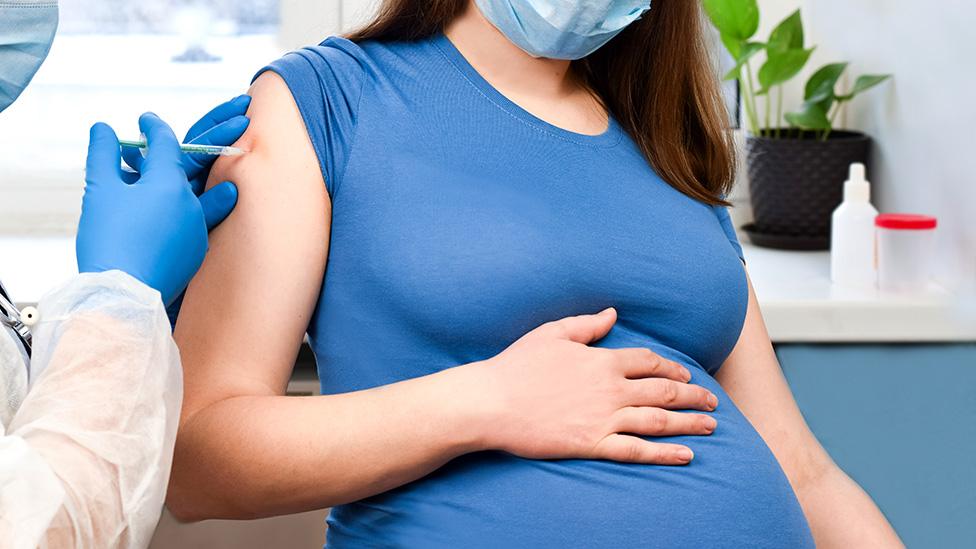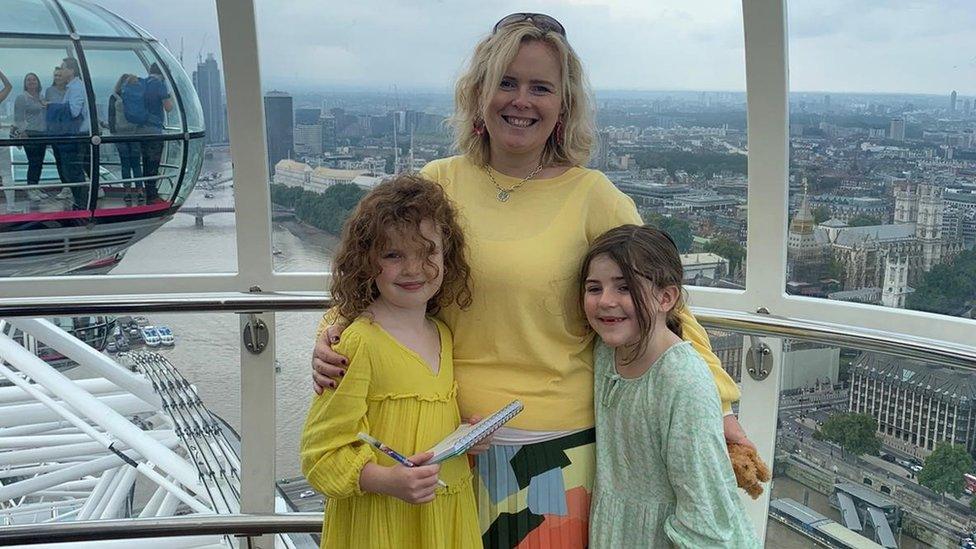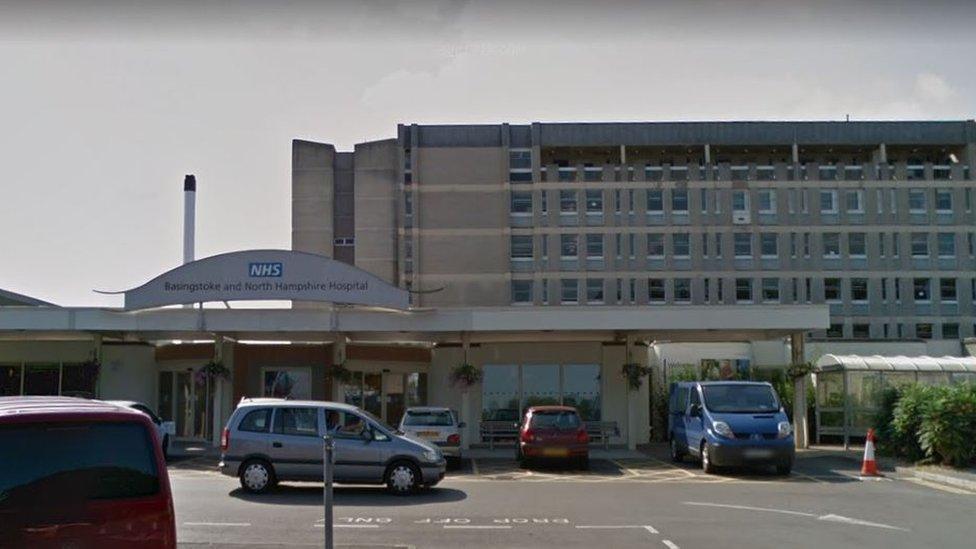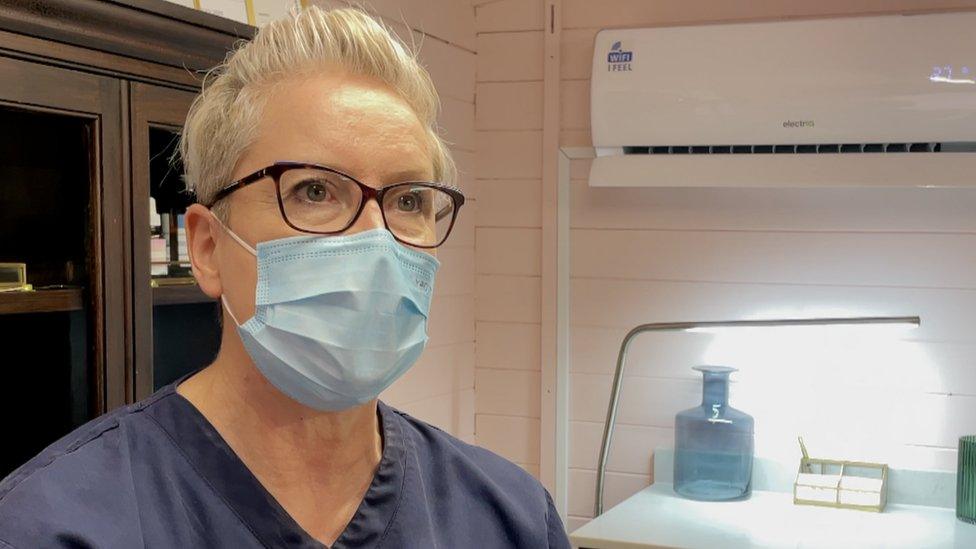'Plummeting' numbers leave midwives 'buckling' under pressure
- Published

The RCM said existing shortages had worsened during the pandemic
"Plummeting" midwife numbers risk the health of staff, mothers and babies, their trade union has warned.
The Royal College of Midwives (RCM) said more investment in maternity services was needed to ensure the safety and quality of care.
RCM executive director Dr Suzanne Tyler said midwives and maternity support workers were "buckling with the sheer weight of demands on them".
The government said supporting staff wellbeing was a "priority".
Dr Tyler said services were "remaining safe simply because of the sheer effort and dedication" of maternity staff.
"The service is crumbling before our eyes and the government cannot and must not ignore it," she said.
'Simmering and palpable discontent'
The RCM said about 600 midwives had left over the past year, adding to "an existing and longstanding shortage" of more than 2,000.
Departures between April 2021 and April 2020:
North East and Yorkshire - down 194, from 4,184 to 3,990
North-West - down 122, from 3,701 to 3,579
South-East - down 114, from 3,857 to 3,743
London - down 111, from 4,957 to 4,846
Midlands - down 64, from 5,033 to 4,969
South-West - down 45, from 2,499 to 2,454
East of England - down 14, from 2,800 to 2,786
The RCM said a survey last year showed 57% of midwives were thinking of leaving the NHS.
It said most gave concerns about the safety and quality of care they were giving as the main reason.
A separate poll of NHS staff in June showed pay was also a major factor in staff loss, the union said.
Dr Tyler said "report after report" had warned about the dangers of poor staffing levels to safety.
"The falls across the regions are compounding the difficulties employers are facing to recruit and keep their midwives," she said.
An "insulting" pay offer and "simmering and palpable discontent" was pushing staff out of the NHS, she said.
"The government must pull its head out of the sand and address urgently the crisis in our maternity services and wider NHS," she said.
A Department of Health and Social Care spokeswoman said staff could receive "rapid access to mental health services".
She said the government was aiming to hire 1,200 more midwives and 100 consultant obstetricians as part of a "£95m recruitment drive" on top of a £127m "investment in maternity services over the next year to help increase the maternity NHS workforce and improve neonatal care".
NHS England has also been tasked with developing a "long-term workforce strategy to help provide certainty for the future," she added.

Follow BBC North East & Cumbria on Twitter, external, Facebook, external and Instagram, external. Send your story ideas to northeastandcumbria@bbc.co.uk, external.
Related topics
- Published26 July 2022

- Published15 June 2022

- Published28 January 2022

- Published20 January 2022
